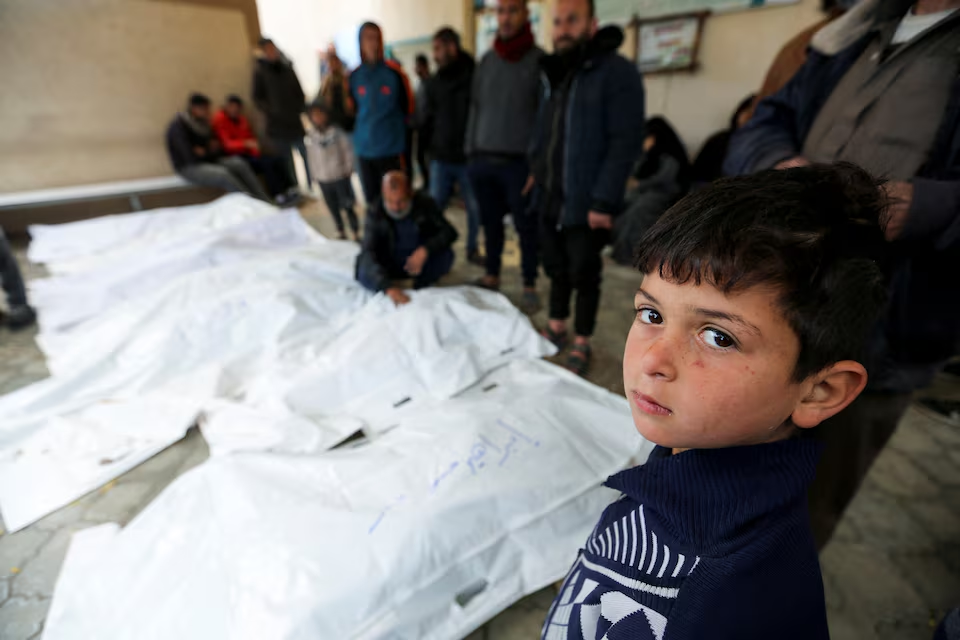
Israeli Military Operations in Gaza Result in Nearly 600 Palestinian Deaths Amid Ground Invasions
In a significant escalation of the ongoing Israeli-Palestinian conflict, Israeli military operations have resulted in the deaths of nearly 600 Palestinians as ground forces advanced into both southern and northern regions of the Gaza Strip. The renewed hostilities mark a dramatic end to a fragile two-month ceasefire, plunging the region back into violence and uncertainty.
The ceasefire, which had been in place for approximately two months, was shattered when Israeli forces launched a series of airstrikes targeting what they described as Hamas military installations in Gaza. The Israeli government cited intelligence reports indicating imminent threats from Hamas as the justification for these preemptive strikes. In retaliation, Hamas fired rockets into Israeli territory, although these were largely intercepted by Israel’s Iron Dome defense system, resulting in minimal damage.
Following the initial aerial bombardments, the Israel Defense Forces (IDF) commenced ground operations in both the southern and northern sectors of Gaza. In the south, IDF units conducted targeted incursions aimed at dismantling Hamas’s infrastructure and neutralizing combatants. These operations involved combat engineering forces and tanks, focusing on mapping out buildings and clearing areas of explosive devices. During one such operation, IDF troops reportedly encountered a Hamas cell emerging from a tunnel, resulting in an exchange of fire that led to the deaths of the Hamas operatives.
In the northern Gaza Strip, Israeli forces intensified their offensive, leading to widespread destruction and a high number of casualties. The Civil Defense Service reported that more than 600 people have been killed since the start of Israel’s military offensive in the northern Gaza Strip over the past two weeks. Spokesman Mahmoud Basal stated that many bodies remain under the rubble and on the streets, as civil defense teams are unable to reach them due to continuous bombardment.
Humanitarian Crisis and Civilian Casualties
The escalation has precipitated a severe humanitarian crisis in Gaza. The United Nations Relief and Works Agency (UNRWA) reported that Israeli airstrikes have hit civilian shelters, including a UN school-turned-shelter north of Gaza City, resulting in multiple civilian deaths. Additionally, a British national was injured during an Israeli airstrike on a UN compound in Gaza, underscoring the conflict’s international ramifications.

The blockade imposed by Israeli forces has exacerbated the situation, leading to acute shortages of food, clean water, and medical supplies. Basal accused the Israeli army of starving the Palestinian population in northern Gaza, stating that many families have not eaten for days due to the relentless bombardment. He warned that “people who do not die from the bombing will die from hunger,” highlighting the dire conditions faced by civilians.
Hamas’s Diminished Capabilities
Hamas’s ability to respond effectively to the Israeli offensive appears to be significantly weakened. Reports indicate that Hamas’s arsenal has been severely depleted, with estimates suggesting they now possess only 10% to 15% of their original 20,000 rockets. The destruction of rocket manufacturing sites by Israeli forces has further hampered Hamas’s capacity to replenish its stockpiles. Additionally, the loss of key leaders and the recruitment of younger, less experienced fighters have contributed to a diminished operational capability. Despite these setbacks, Hamas continues to prepare for potential guerrilla warfare and maintains some capability to inflict casualties.
International Reactions and Diplomatic Efforts
The international community has expressed deep concern over the escalating violence. Protests have erupted in various countries, condemning the Israeli military actions and calling for an immediate cessation of hostilities. Diplomatic efforts are underway, with Qatar and Egypt reportedly attempting to mediate a new ceasefire agreement. However, these efforts have yet to yield tangible results, and the prospects for a swift resolution remain uncertain.
Israeli Political Developments
In a significant political development, Israeli Prime Minister Benjamin Netanyahu has dismissed Shin Bet chief Ronen Bar amid a power struggle over the handling of the conflict. This move has sparked protests within Israel, with critics arguing that the dismissal could undermine the country’s intelligence operations during a critical period. The decision has also raised concerns about the potential impact on efforts to secure the release of hostages held by Hamas.
Casualty Figures and Ongoing Conflict
The death toll continues to rise as the conflict persists. Since the resumption of Israeli military operations, over 504 Palestinians have been killed, with a significant number of women and children among the dead. On the Israeli side, the conflict has claimed the lives of over 600 individuals, including both military personnel and civilians. The war, which began with a Hamas-led attack on Israel resulting in approximately 1,200 Israeli deaths and numerous hostages taken, has led to widespread destruction in Gaza, with most casualties being women and children.
The recent escalation in Gaza has resulted in a tragic loss of life and has exacerbated an already dire humanitarian situation. The breakdown of the ceasefire and the subsequent military operations have underscored the fragility of peace in the region. As international efforts to broker a new ceasefire continue, the immediate priority remains addressing the urgent humanitarian needs of the affected civilian population and preventing further loss of life.